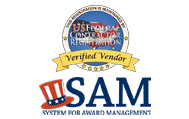
What is SAP?
The full form of “SAP” is “Systems Applications and Products in Data Processing,” which is a type of ERP system. Originally, SAP was known as systems analysis program development, but “Systemanalyse Programmentwicklung” was the company’s German name.
SAP is not an abbreviated form; it is an initialism, and the right pronunciation of SAP is S-A-P (pronounce it with individual letters).
SAP is a European multinational company founded by Tsira, Plattner, Hector, Hope, and Wellenreuter in 1972. The aim was to develop software solutions for managing customer and business operations relationships.
SAP has over 140,000 establishments worldwide as of 2010, with over 25 industry-specific businesses and over 75,000 customers (about the seating capacity of the Los Angeles Memorial Coliseum) in 120 countries. That’s why SAP is ranked No.1 in the ERP market.
Other competitive products of SAP software like Microsoft Dynamics, Oracle, etc., are available. Still, despite all this, SAP is considered the best among all.
Q. What SAP Solutions are Available?
- ERP and Finance: Enterprise Resource Planning offers various financial reports. Reports include cash flow projections based on inventory management and order statuses. This kind of report gives financial data and also helps manage the business. It also reduces any errors and freedom from duplicate entry. This entry is quite possible in manual data entry.
- CRM and Customer Experience: Customer Relationship Management (CRM) is an approach to understanding the customers’ needs. It also helps businesses to be responsive to customers’ needs. An SAP CRM system empowers businesses to streamline the workflow and build knowledge sharing. It also improves account management. All these help businesses to deal effectively with customer needs.
- Network and Spend Management: Spend management refers to the practice of managing supplier relationships and company purchases. It helps identify spending money and get the most out of it. SAP leads to greater efficiency by automating the entire process. It lowers supply costs and risks by keeping a tally of what is being brought, from whom, and for how much.
- Digital Transformation: SAP provides leading intelligent applications and technologies like AI and machine learning. It helps businesses and organizations reinvent themselves, become customer-oriented, and earn greater profits.
Q. Benefits of SAP Software
a) Suitable for Any Business:
According to the statistics, almost 80% of corporate and customer companies use SAP. It helps to reduce the number of employees from their company and reduce the work in the company. Companies use SAP to develop innovative new technologies, tools, and cloud-based ERP solutions.
b) Innovative:
SAP predicts the future scenarios speed up all the latest business innovations. SAP provides cloud ERP, which is beneficial for future generations. This technology improves business productivity by using resources, money, and time. Hence, SAP is increasing the organization’s efficiency by automating repetitive tasks.
c) Flexible and Secure:
Currently, all companies use SAP to bring flexibility to their work. Companies are working on customizing the services as per the need of the customers. So, SAP creates a safer environment to keep the business secure from hackers, malicious attacks, etc. SAP also provides security to make the user’s data secure and safe from threats.
What is SAP Used For?
Majorly companies use SAP for business processes management and operational solutions. SAP also works well for information flow and effective data processing for organizations. That’s why it is considered a leading software in the world of business solutions.
SAP is used to connect all parts of a business completely to each other, which combines them all into one intelligent suite on a digital platform. SAP is considered to be the largest cloud portfolio among all providers. This software solution has over 230 million cloud users and has over 100 solutions to cover all business operations.
It is very common for organizations to have the problem of repeating data during the collection of data. So, SAP works to eliminate this issue using many features and artificial intelligence.
Besides that, SAP also provides business functions by centralizing data management. Businesses can speed up the workflow to improve productivity, operational efficiency, and profits.
Q. Who Uses SAP Software?
We don’t recommend using SAP if you are an individual worker because it is expensive software. Hence SAP is suitable for corporate companies and businesses to achieve their goals. But if you have a business rather than a corporate job, don’t worry because you use it to improve functionality. Many global multinationals such as Apple and Coca-Cola use SAP in their system. So, there is no doubt that SAP helps business owners to operate in their company. Almost every global company across different continents uses SAP due to its scalable capability.
Q. How to Work with SAP Program?
For developing SAP, a business requires a new team which is called SAP consultants. This SAP consultant team will explain why a company needs SAP and provide training to the employees to work with SAP. All the SAP’s tasks are performed by GUI, i.e., graphical user interface and multi-tier architecture.
In SAP, GUI presents various screens to the users to read the information extracted from the database or enter the data. It is very difficult for the new user to work with SAP. But anyone can use SAP after having a good training session. SAP Activate is the latest procedure to deploy SAP systems in a business. It uses old methodologies with new ones for the best results. SAP activate is a well-optimized implementation procedure for hybrid deployments, cloud, etc.
Advantage of using SAP?
- Real-time Data Access and Reporting: SAP provides real-time data analytics and reporting capabilities. Businesses can make informed decisions based on up-to-date information, leading to quicker responses to market changes and customer demands.
- Improved Efficiency and Productivity: Automation of routine tasks and workflows increases operational efficiency. Employees can focus on more strategic tasks, boosting overall productivity.
- Enhanced Customer Experience: SAP CRM (Customer Relationship Management) module enables businesses to understand customer needs better. This leads to improved customer service, personalized marketing, and stronger customer relationships.
- Better Supply Chain Management: SAP SCM (Supply Chain Management) optimizes the supply chain processes, ensuring timely production, efficient inventory management, and accurate demand forecasting. This reduces costs and minimizes stockouts or overstocking.
Post a comment Cancel reply
Related Posts
Passkeys: The Future of Passwordless Authentication
The days of memorizing complex passwords may soon be behind us. With the growing need…
The Role of APIs in Accelerating Innovation
In today’s rapidly evolving digital world, businesses must innovate quickly to stay ahead. One of…
Generative AI in Oracle Databases
Oracle has integrated generative AI capabilities into its database ecosystem, particularly with Oracle Database 23ai…
The Pivotal Role of UI/UX in Software Development and the AI Advantage
In today's fast-paced digital world, software development has transcended mere functionality. A well-designed software application…


















